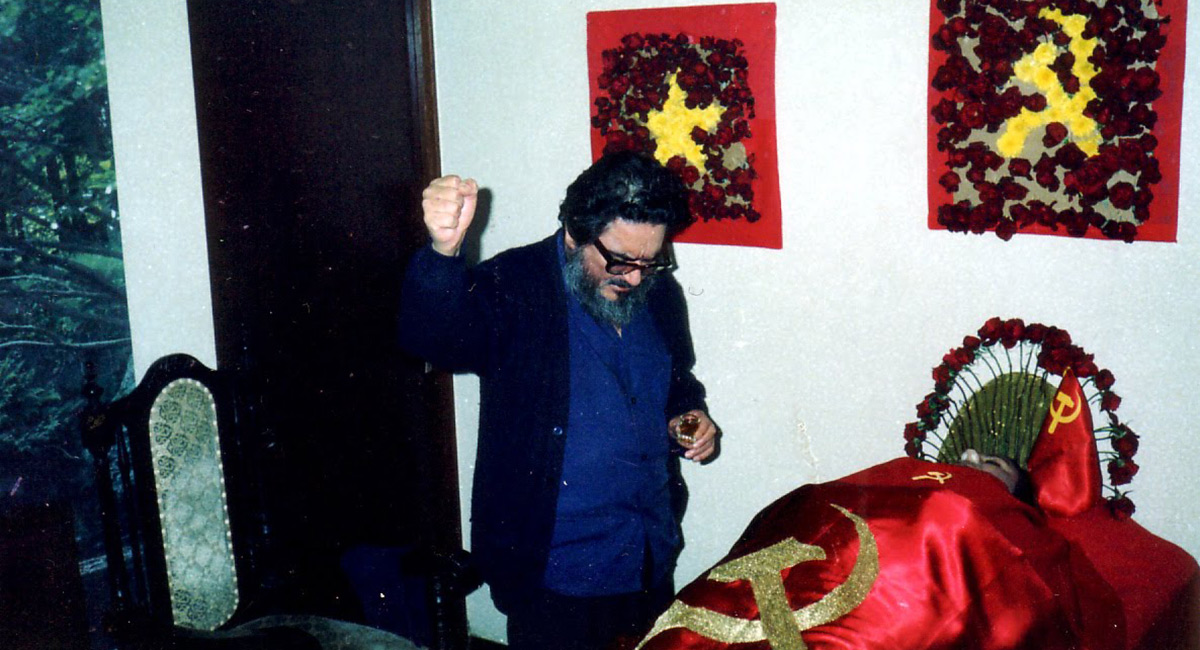It’s no small irony that Abimael Guzmán—the Maoist revolutionary who founded the Peruvian terrorist organization Shining Path some 50 years ago and died on Sept. 11—lived just long enough to see a Marxist-Leninist, Pedro Castillo, assume Peru’s presidency.
Although Guzmán and most Shining Path members gave up armed terror after his capture in 1992, his acolytes—represented today in both Mr. Castillo’s cabinet and the Peruvian Congress—never gave up their quest for power. Mr. Castillo is pushing for a new constitution that would concentrate political and economic power in the government and has appointed a prime minister who is a longtime Shining Path sympathizer—moves that already are undermining social cohesion and confidence in the economy and are likely to affect private investment. It’s not encouraging.
In 1989 and 1990, as a young activist in my father’s presidential campaign, I accompanied him to the funerals of some of the more than 100 members of his Freedom Movement party, most of whom were poor, who had been killed by Shining Path.
In a region known for revolutionary insurrections, Shining Path was an extreme example. In the 1980s and 1990s, it was directly responsible for an estimated 30,000 deaths and some $20 billion in property damage. Thousands more died at the hands of Peru’s military, which was charged with fighting back. Had Shining Path gained power, it would have established a regime similar to China’s during Mao’s Cultural Revolution.
José Carlos Mariátegui, the father of Peruvian socialism, has written that myth is the force that “stirs man in history.” Guzmán and Shining Path relied heavily on myth. A Communist Party member since the late 1950s and a philosophy professor at a public university in one of Peru’s poorest provinces, Guzmán, along with his allies, sold the myth that they would overthrow Peru’s exploitative elites and bring about a classless society. Guzmán’s idea of a permanent cultural revolution that would prevent the return of capitalism and imperialism—expressed in apocalyptic language—mobilized thousands of committed fanatics. The myth of ideological purity gave a sense of belonging to those who resented existing conditions and their families’ impoverished circumstances, justifying the indiscriminate violence Shining Path employed.
The ideology had little to do with the reality of millions of Peruvians who aspired to join the middle class, own property and have access to global markets. Small remnants of Guzmán’s Shining Path are still active in the Valley of the Rivers Apurimac, Ene and Mantaro, in Peru’s coca-producing area; and various Communist front organizations work to influence government, but they don’t pose the same kind of threat that Shining Path did in its heyday.
The lesson of Abimael Guzmán’s life and death is not that Peru’s rural poverty and urban marginalization created the conditions for Shining Path. The real lesson is that delusional fanatics armed with the ability to organize and motivate people can put the precarious foundations of civilization at risk.













